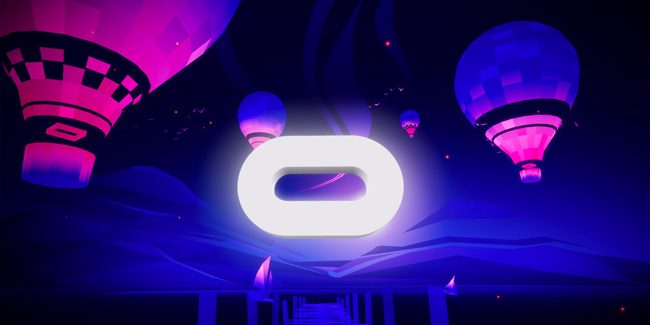Oculus and Unity Team Up to Offer Free VR Development Course
Oculus and Unity have announced a partnership to launch a free intermediate VR game development course, aimed to give game developers the essential principles and skillset necessary to develop their own immersive virtual reality projects and experiences.
The new comprehensive course entitled “Design, develop and deploy for VR,” consists of a total of 11 intermediate-level lessons for developers to dive into, each taught by experts from both Oculus and Unity, and is estimated to take more than 20 hours to complete. The units cover an extensive range of principles and best practices —including prototyping, hand presence and interaction, locomotion, spatial audio, UI, optimization, and more to create virtual reality games and immersive experiences.
“In more than 20 hours of hands-on course content, you’ll learn about programming, user experience considerations for VR, optimization, launching your game and more,” says Unity. “Twelve experts from Oculus and Unity give you in-depth lessons to help you build your own vertical slice (think, level of a game) of an escape room game.”
After completing the course, developers will have the option to submit a vertical slice of the project they created for feedback from the Oculus Developer Support team.
Here’s an overview of the 11-unit course topics at a glance:
- Unit 1: Introduction – Chris Pruett from Oculus – Chris gives you an overview of the VR industry, best practices for a successful VR game and an overview of what you’ll be learning.
- Unit 2: VR game development and prototyping – Ruth Bram and Mari Kyle from Oculus – Planning sets you up for success, and in this unit, you’ll learn to create a game design document, a player profile report and a press kit.
- Unit 3: Using Unity to develop VR experiences – Joy Horvath from Unity – You’ll learn how to set up the Oculus and Virtual Reality Toolkit (VRTK integrations) in Unity as well as how to set up a basic VR scene.
- Unit 4: Locomotion and ergonomics – Eric Cosky from Oculus – Get best practices for making your VR experience comfortable and learn how to implement a teleportation system.
- Unit 5: Hand presence and interaction – Matt Franklin from Oculus – Learn how hand interactions work in VR, how to design interactions to manipulate objects and how to overcome challenges with item placement.
- Unit 6: Best UI practices for VR – Gabor Szauer from Oculus – Transition from 2D to VR, review well-established VR interaction paradigms (think laser pointers) and find out how to design a user-friendly interface for VR.
- Unit 7: Sound in VR – Robert Heitkamp from Oculus –Implement spatial audio for VR with the Oculus Spatializer Plugin. Plus, dive into reverb and mixer settings and learn how to test your audio.
- Unit 8: Performance requirements – Matt Conte from Oculus – Be efficient with assets, implement lighting and configure your settings to get better performance from your VR game.
- Unit 9: Optimization – Cristiano Ferreira from Oculus – Get to the bottom of bottlenecks with Unity Profiler, Frame Debugger and Unity Profile Analyzer. You’ll also learn about the technical requirements to pass Oculus Virtual Reality Checks (VRCs).
- Unit 10: Testing – Lisa Brewster and Bruce Wooden from Oculus – Successfully run tests on your VR application. By the end of this unit, you’ll be ready to implement quality VR playtests to your development cycles.
- Unit 11: Submission and go-to-market strategy – Mari Kyle from Oculus – In this final unit, you’ll get a crash course on marketing to drive awareness of your VR experience and pricing strategy. We’ll also talk about best practices for submitting to the Oculus Store.
It’s recommended that if you are both new to game development and VR that you begin with some basic introductory courses such as Intro to Unity and an Intro to VR tutorial before diving into this intermediate-level VR course. Once you do that, then all you will need to get started is the latest version of Unity, the Oculus SDK and VRTK, and Oculus hardware (such as the Oculus Rift/Rift S or Oculus Quest). Check out the new course from Oculus and Unity today!

